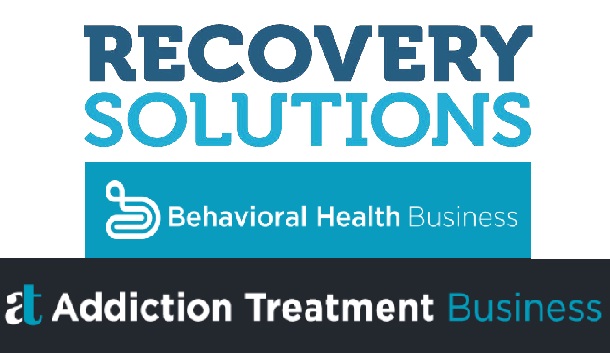For the past two months, WFAE has been exploring the crisis brewing in North Carolina’s mental health system. That includes a shortage of state hospital beds.
Hundreds of North Carolinians in crisis wait weeks in emergency rooms, before they can get a state hospital bed. And criminal defendants who are too sick to stand trial can wait more than a year to go to a hospital, just so they can get enough treatment to be able to stand trial for their alleged crimes.
Now North Carolina is piloting a program it hopes will alleviate the crisis. And it’s starting in the Mecklenburg Detention Center.
Mecklenburg County Sheriff Garry L. McFadden walked toward a new unit, the first in-jail restoration program in the state. It’s a basic correctional environment, with concrete walls and floors, and 10 cells that open onto a large group space, McFadden said.
“It’s got more space than some other units,” he said. “We have a space where there is a dayroom and a place where [inmates] can use the phone and see TV.”
All 10 inmates are living with mental impairments so severe they can’t understand their charges or assist their lawyers. They’re in the unit to get enough mental health care for their cases to move forward.
This program isn’t open to everyone. Inmates who are extremely ill or dangerous still need to wait for a hospital bed. But those who have been living peacefully in jail and taking their medications can try to get well enough here.
“You’re going to have a caseworker or social worker,” McFadden said. “You’re going to be seen daily, you’re going to go through therapy, you’re going to go through the medication, and we’re going to have you in settings where you are heard.”
A psychiatrist is available by telehealth two days a week to adjust medications. Four hours a day, two social workers provide therapy and group sessions, including classes that help inmates understand the legal system. They may learn by watching clips from courtroom films or by performing mock trials. That education is usually a big part of capacity restoration.
The first inmate arrived in the Mecklenburg program in December. So far, 17 jail residents have entered the program, the staff said. Ten have been deemed “restored” by the program’s psychologist. That means they were well enough to assist in their defense, but it doesn’t mean they were cured. One inmate was so sick, he’ll have to go to the hospital program, the psychologist said. Another was “unrestorable.”
North Carolina’s Department of Health and Human Services said it’s pleased with the early results.
“We want to be a model for the state,” McFadden said. “Because if you talk to sheriffs across the country, this is what they deal with: People being incarcerated and [they] do not have the capacity to proceed.”
Preliminary good reviews
The program is run by Wellpath Recovery Solutions, a private equity-backed contractor. It runs in-jail capacity restoration programs in three other states – including a six-year-old program in California, similar to the Mecklenburg jail pilot. Results in California show that three-quarters of the patients were restored last year. Restoration took an average of 61 days per patient.
Wellpath Recovery Solutions is a division of Wellpath, one of the largest jail and prison health care companies in the nation. It operates in more than 350 jails and 135 prisons across the country – including Mecklenburg’s.
Wellpath and its predecessor company have been sued repeatedly for providing inadequate health care, and a recent report by the Massachusetts Disability Law Center criticized a Wellpath hospital there, writing that it was unsafe. But a 2022 review of the lawsuits involving Wellpath Recovery Solution’s inpatient psychiatric facilities by the New Hampshire assistant attorney general found the amount of litigation was in the normal range when compared to similar facilities. And it found “no red flags” with regard to quality of care.
Wellpath Recovery Solutions’ Senior Vice President Teresa Koeberlein told WFAE that Wellpath agrees with that assessment. And, so far, its capacity restoration program, called RISE, is getting some good preliminary reviews in Mecklenburg.
Mecklenburg-based defense attorney, Tim Emry, said so far he’s impressed with the jail’s RISE program.
“I had one client who was successfully restored through RISE,” Emry said. “And I think they did wonders for … that client.”
Emry won’t mention his client’s name because of attorney-client privilege. Police arrested the 32-year-old on May 24, 2022, for misdemeanor trespass at the Charlotte Convention Center. But then his client spit on the arresting officer’s shoe – that’s a felony. He was subsequently found incapable to proceed, and was in custody for about a year by the time he went to the jail restoration unit. Emry said someone who wasn’t mentally ill would have been out of jail months earlier.
“It was great because in that situation, what he had was a gob of misdemeanor charges, basically nuisance crimes,” Emry said. “And it allows him to get out and get into a therapeutic probationary wellness court program.”
But the program isn’t a magic bullet. Even with the added care he received through the wellness court program, Emry’s client died a few weeks later of a drug overdose. Emry said he would like to see more emphasis on treatment and less concern about just restoration.
“The goal was to get that person restored so they’re capable to be prosecuted, right?” Emry asked. “The goal is not to help them have a mental health transformation where they are successful.”
A national competency crisis
North Carolina’s Secretary of Health and Human Services Kody Kinsley said outpatient restoration units not only help inmates, they also shorten the wait time for anyone else who needs a psychiatric hospital bed – including those who wait weeks or even months in state emergency rooms.
“Second to Medicaid expansion, as far as system redesign, there’s probably not something that is a bigger win and more transformational for so many people than fixing the way we do capacity restoration in our state,” Kinsley said.
Sending everyone who needs restoration to a state hospital is wasteful, Kinsley said. Some don’t need all that care. And some need it only for a time while doctors figure out which medications they need. A lot of what happens in capacity restoration is really just education.
“We then have psychiatrists and therapists and other people teaching these individuals civics,” Kinsley said. “This is a judge. This is a jury … not the best use of their skills, their time.”
It’s also expensive. Kinsley said a state hospital bed costs $1,400 a day. That’s compared to $590 a day for each inmate in Mecklenburg’s restoration unit. And since outpatient restoration is faster, the total bill is a lot lower.
On average, hospital patients take about four times as long to restore, although that’s in part because defendants who go to a hospital are typically a lot sicker or more difficult to work with. NCDHHS said it costs $2.5 million to restore 10 people in a hospital, compared to $250,000 in the jail.
That cost differential is one of the reasons at least 10 states from Virginia to California have jail-based restoration units. It’s a response to a national “competency crisis,” said University of Virginia psychiatry professor Daniel Murrie.
“Almost every state is struggling with this to some degree,” Murrie said. “And a few dozen states already have faced legal action. So there is something about this that is not at all unique to any one state, but is a national phenomenon.”
Even states under court orders to reduce wait times have a tough time reaching their goals because the number of people who are found incapable to proceed keeps growing, Murrie said.
One possible reason: the increase in the use of drugs such as methamphetamine and high-potency marijuana, which can trigger psychosis, Murrie said.
Another: the increase in homelessness and the lack of available mental health care.
“Many, many people found not competent are facing only misdemeanor charges,” Murrie said. “Probably because so many people with serious mental illness are caught up in the criminal legal system for pretty minor charges.”
In North Carolina, at least half of those who wait for initial competency evaluations are facing misdemeanor charges, according to NCDHHS. Most will never get a hospital bed because they can’t be held past the maximum sentence for their charges. If they do, they probably won’t stay long enough for much care – which raises the question: Are we wasting money?
“It’s sure not efficient,” Murrie said. “In our research, we’ve found it’s expensive to restore people facing only misdemeanor charges. By the time they are restored, most of them just have the charges dropped and then they are released to the community, often without further services.”
Murrie also said there’s a debate about whether capacity restoration should take place behind bars.
“On the one hand, you have some folks who say it absolutely makes sense to start restoration in the jail,” Murrie said. “On the other hand, you have advocates who say a jail is never going to be a therapeutic environment like a hospital. It just can’t replace inpatient restoration.”
The group Disability Rights North Carolina is in the camp that believes jails can never be the right place for restoration. The group’s supervising attorney, Susan Pollitt, calls it a non-starter.
“Jails are destabilizing settings for people with behavioral health challenges,” Pollitt said. “They’re isolating. They separate people from community.”
Pollitt believes that, whenever possible, inmates should be released to their communities to get capacity restoration as outpatients. Others, she said, should go to a hospital.
Treatment in communities
Starting now, some inmates will be able to get capacity restoration in the community. Some of those charged with misdemeanors and nonviolent felonies will be able to go to an outpatient program.
Dr. Sherif Soliman heads the unit at Atrium Health in Charlotte. He took WFAE on a tour of the unit. We walked through a breezeway to a small brick building surrounded by trees. Birds were chirping. It looked nothing like a jail.
The pilot can accommodate 20 patients at a time. They’ll live at home, if they have one. Solomon thinks some will be homeless, so a case manager will try to help them find housing. But he admitted that finding housing can be challenging for this population.
Defendants will come to this cottage several times a week for medication management, if necessary. Like the programs at hospitals and at the jail, Atrium’s program will educate patients about the court system. Patients will discuss newsworthy court cases and watch courtroom films. And there is therapy and substance abuse treatment for those that need it.
WFAE asked if they’ll watch “My Cousin Vinny,” a classic comedy film about the legal system.
Soliman laughed. “Possibly, among other things. We sometimes use real trials, as well, to illustrate trial procedure and also to help educate patients about the sort of decisions that could come up during a criminal trial,” he said.
But Soliman wants his program to go further. He wants to move his patients into long-term care after their legal problems are resolved.
“That’s one of the things that makes this program so exciting,” he said. “There will be an option where we can begin capacity restoration in the community. And more importantly, we can begin the process of engaging that patient with treatment.”
Wake and Cumberland counties have started community-based restoration programs, too.
“It doesn’t take many jail-based units and community-based units throughout the state to essentially clear the waiting list from the state psych hospitals,” Kinsley said. “This is a win-win-win opportunity.”
But while three community programs are coming on line, so far only Mecklenburg Detention Center has been willing to pilot a jail-based program. Kinsley has long been trying to get jails in Wake and Cumberland to sign on too. NCDHHS said they’ve probably been waiting to see how the Mecklenburg program works first.
The NCDHHS is even talking about mobile capacity-restoration teams to operate in rural communities.
But all that will likely require stable funding. Right now the community-based restoration pilots are funded with federal block grants. The Mecklenburg Jail’s pilot program gets funding from a trust fund with limited monies. That means the legislature still has to sign on.
Reporters Mona Dougani, of WFAE, and Julia Ingram, of “FRONTLINE,” contributed research to this report.



